Essential Garbage Truck Safety Tips and Regulations
Ensure garbage truck safety regulations are followed by performing daily checks, wearing protective gear, and following OSHA standards. Learn more!
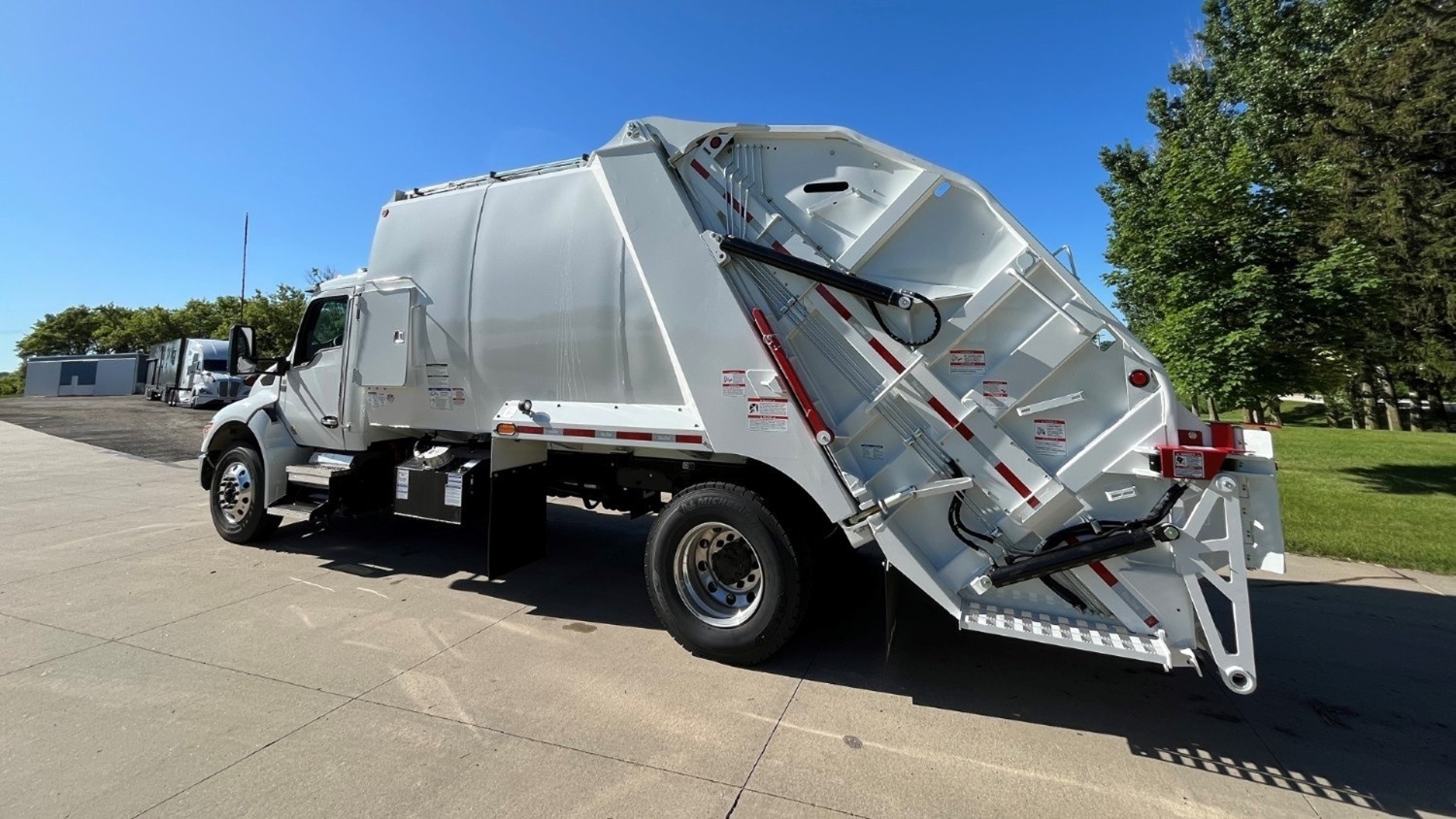
Ensure garbage truck safety regulations are followed by performing daily checks, wearing protective gear, and following OSHA standards. Learn more!

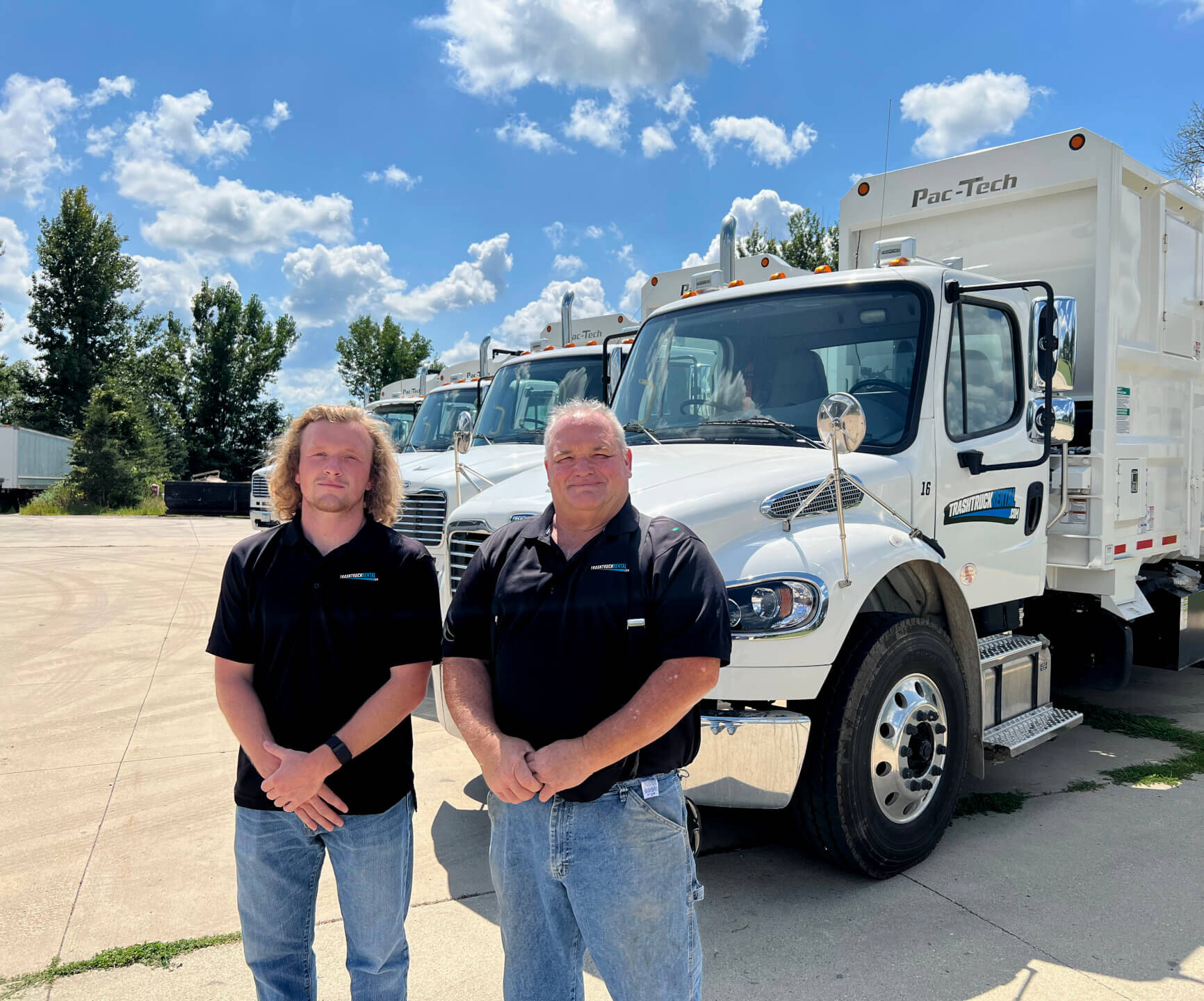
Garbage trucks are integral to maintaining cleanliness in our cities, but one cannot dismiss the fact that they are large vehicles that present unique safety risks. Waste management operations often involve tight schedules, challenging environments, and large volumes of waste, all of which can increase the potential for accidents and injuries. To mitigate these risks, it's crucial for waste management companies to adhere to garbage truck safety regulations and implement safety best practices.
In this blog, we will explore essential garbage truck safety tips and regulations to help operators, fleet managers, and waste management teams reduce accidents, ensure worker safety, and comply with industry standards. From daily checks to defensive driving practices, we will cover everything you need to know to operate garbage trucks safely and efficiently.
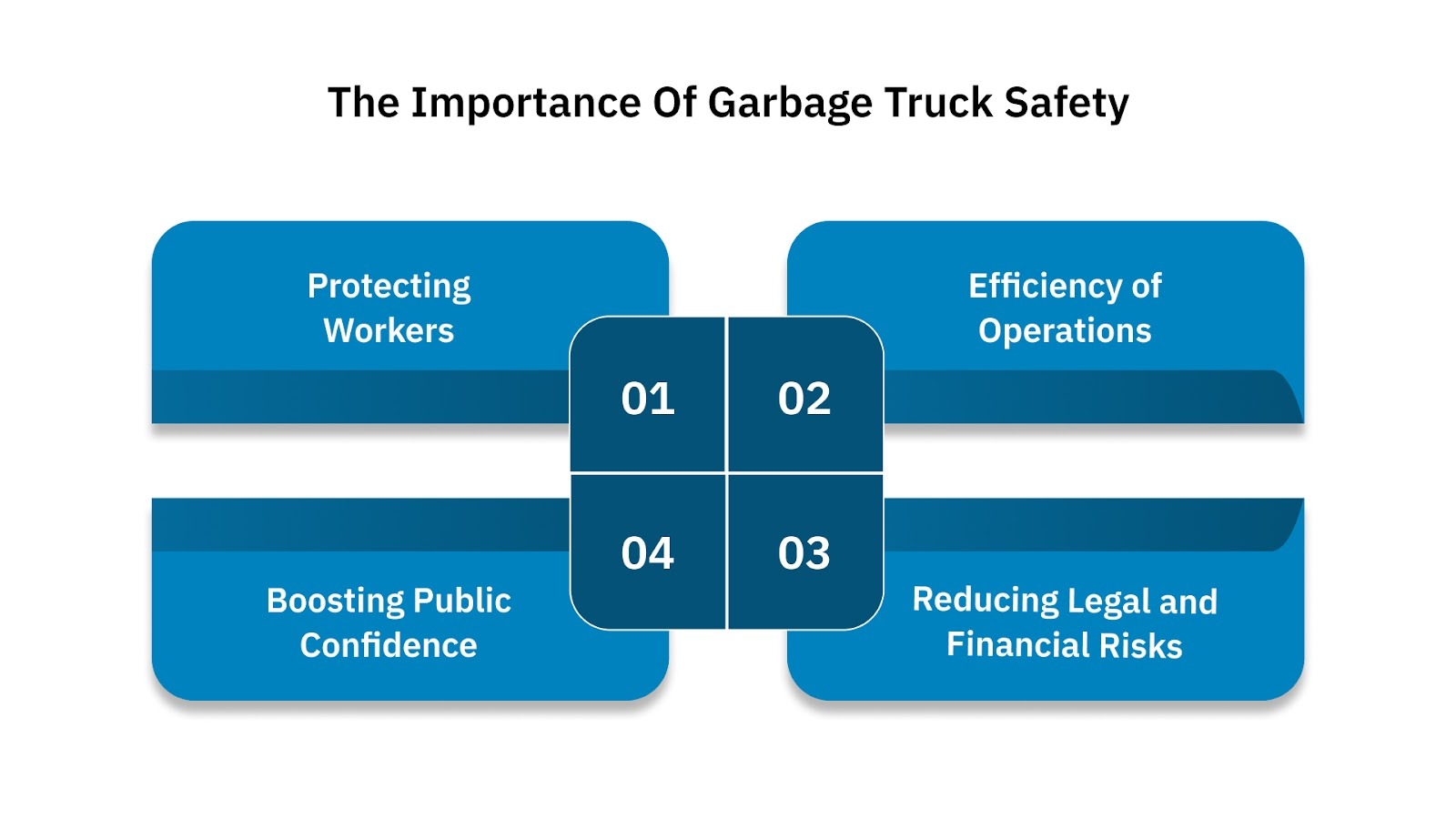
Garbage truck safety is not just a matter of regulatory compliance. It directly impacts the well-being of employees, the safety of the public, and the efficiency of waste management operations.
Garbage trucks operate in complex and often hazardous environments, navigating narrow streets, busy traffic, and unpredictable conditions. The safety of both the drivers and the communities they serve relies heavily on how well safety protocols are followed.
By ensuring garbage truck safety, you are not only reducing the likelihood of accidents, but also:
In this blog, we will walk through the essential garbage truck safety regulations and tips that ensure safe operations, both for the truck operators and the communities they serve.
Now that we understand the significance of safety in garbage truck operations, let’s explore the key safety tips and regulations that should be followed to minimize risks.
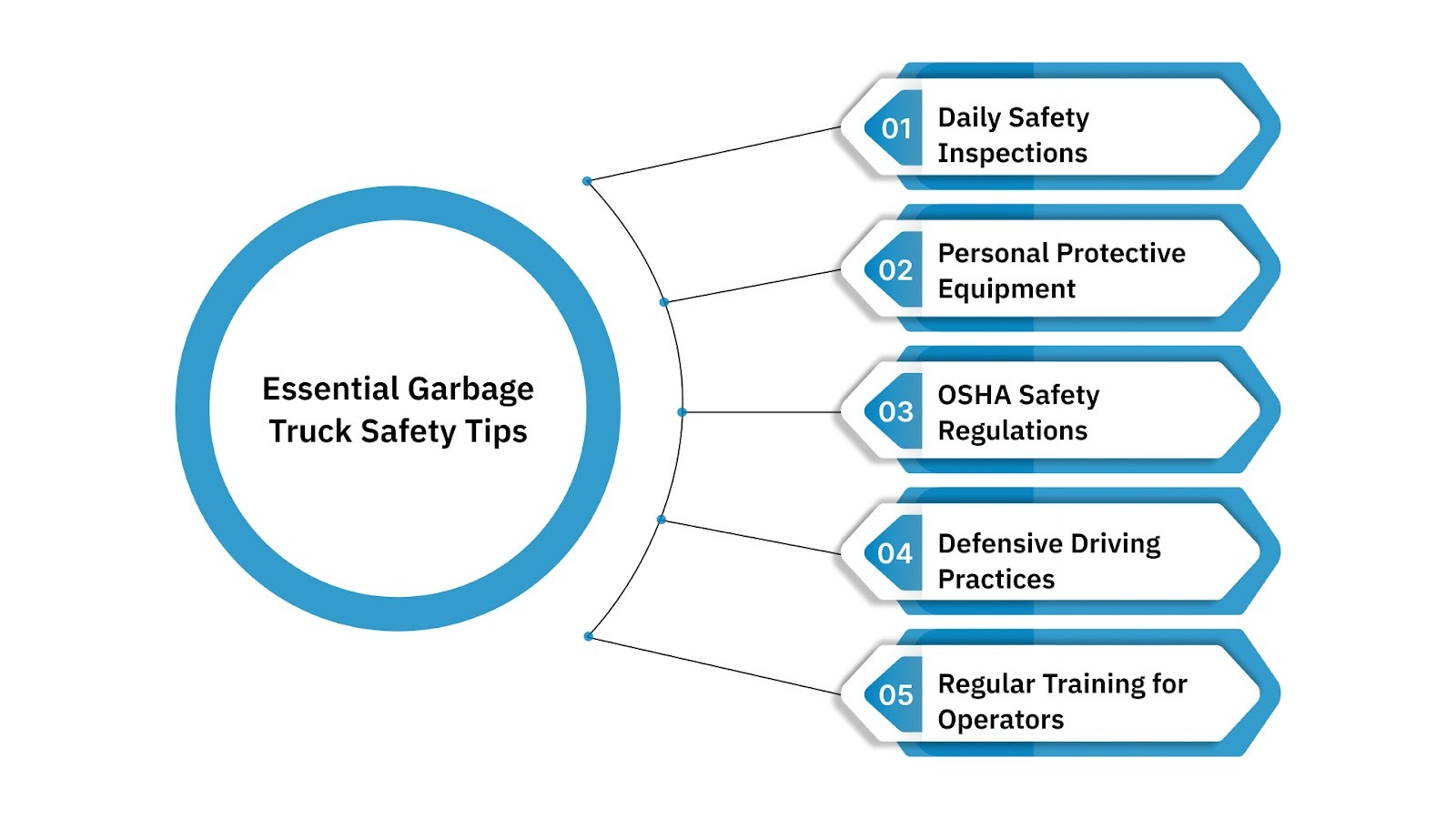
Implementing these safety tips is crucial for preventing accidents and ensuring that both operators and the public remain safe during waste collection operations. Following these practices can greatly reduce the risk of injury, vehicle damage, and service disruptions.
Before a garbage truck hits the road, conducting daily inspections is a must. These checks should cover:
Performing these daily checks ensures that the garbage truck is operating safely and efficiently, reducing the risk of malfunctions on the job.
Next, let's look at the importance of wearing proper protective gear to ensure the safety of operators and workers.
Waste management workers are exposed to a variety of hazards, from heavy lifting to exposure to hazardous materials. To minimize the risk of injuries, it’s essential to equip workers with the right personal protective equipment (PPE):
With proper safety gear in place, it is equally important to follow the regulations and standards set by governing bodies like OSHA.
The Occupational Safety and Health Administration (OSHA) sets strict guidelines to ensure the safety of workers in waste management. Adhering to these standards helps reduce the risk of accidents and injuries. Key OSHA guidelines for garbage truck operations include:
By adhering to OSHA standards, garbage truck operators not only protect themselves but also contribute to a safer and more efficient waste management operation.
Now, let’s dive into defensive driving techniques that help reduce accidents on the road.
Garbage truck drivers often move through busy streets, residential areas, and construction zones, where they face potential hazards like pedestrians, cyclists, and other vehicles. Defensive driving is essential to minimize these risks and avoid accidents:
Defensive driving combined with regular training can significantly reduce road accidents and improve overall safety for both drivers and pedestrians. Now, let’s look at the importance of training programs for operators.
Regular training ensures that garbage truck operators stay up-to-date with safety standards, operational procedures, and emergency protocols. Training should cover:
Ongoing training is essential for keeping drivers and workers informed of safety best practices, minimizing the risk of accidents and injuries.
Also Read: Best Garbage Trucks for Short-Term Rental in 2025
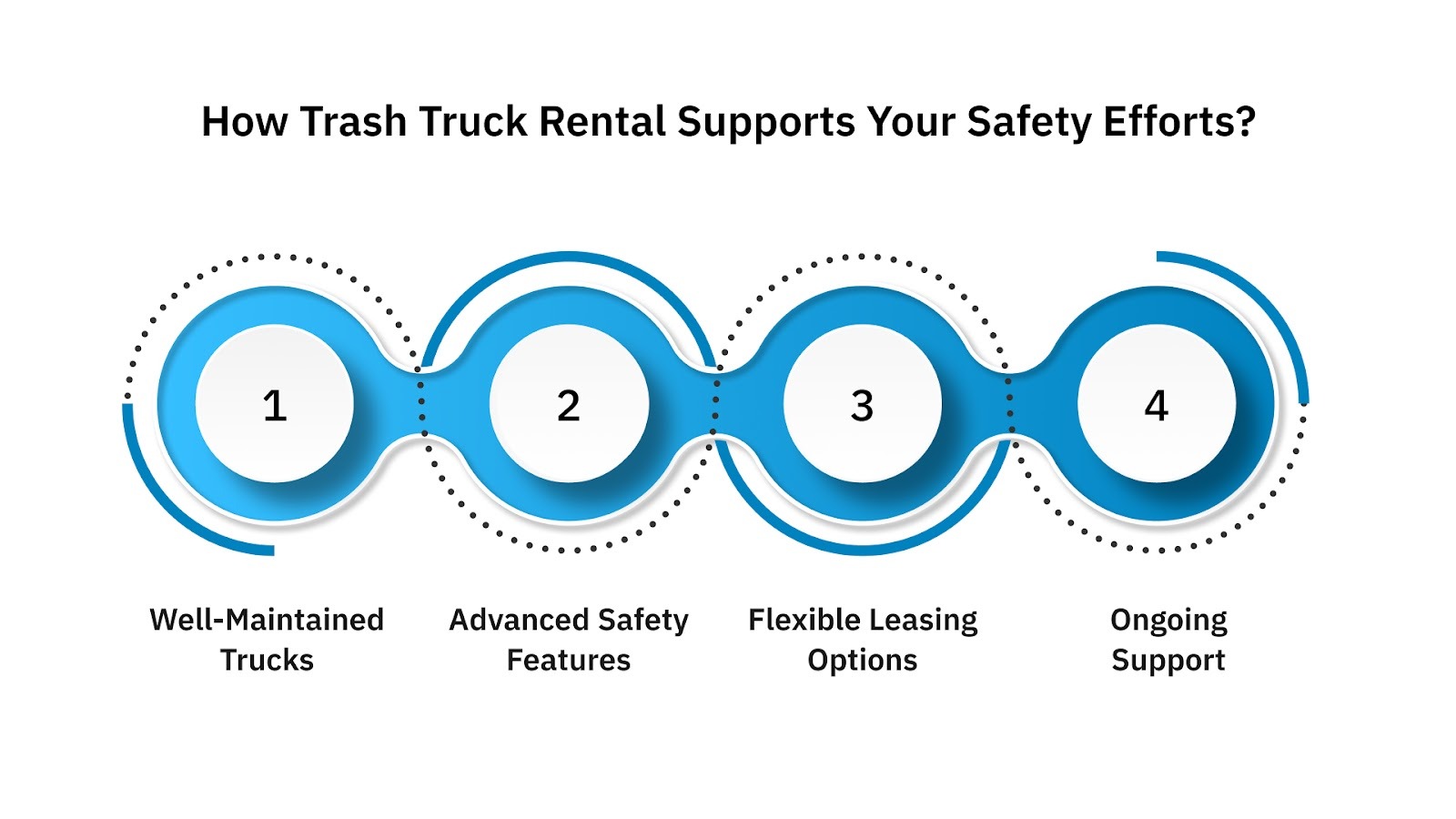
Trash Truck Rental prioritizes the safety of both your crew and the public by providing well-maintained trucks equipped with the latest safety features. Here’s how we support your safety efforts:
By choosing Trash Truck Rental, you can be confident that your fleet is operating with the latest safety technologies and support, allowing you to focus on efficient and secure waste management operations.
Garbage truck safety is critical for the smooth operation of waste management services. By conducting daily safety inspections, wearing appropriate PPE, adhering to OSHA safety regulations, adopting defensive driving techniques, and providing regular training, you can reduce the risk of accidents, protect workers, and ensure that garbage trucks operate efficiently and safely.
Trash Truck Rental is here to help you.
We are committed to supporting waste management companies and municipalities (primarily within Minnesota, Wisconsin, and Iowa) with rental and purchase options for garbage trucks equipped with the latest safety features. Contact us today to learn more about how our reliable trucks and safety-focused approach can help your business run smoothly and safely.
Common hazards include road accidents, exposure to hazardous waste, and mechanical malfunctions. Proper training, safety gear, and regular vehicle inspections help reduce these risks.
By providing regular safety training, performing daily vehicle inspections, and ensuring adherence to OSHA guidelines, operators can stay compliant and safe.
Essential safety features include backup alarms, fire extinguishers, proper lighting, hydraulic system safety features, and visibility enhancements.
Defensive driving helps drivers anticipate potential hazards, maintain safe distances, and react proactively to road conditions, reducing the likelihood of accidents.
We offer trucks equipped with advanced safety features, flexible leasing options, and maintenance support to keep your fleet operating safely and efficiently
Ready to Upgrade Your Process Operations?